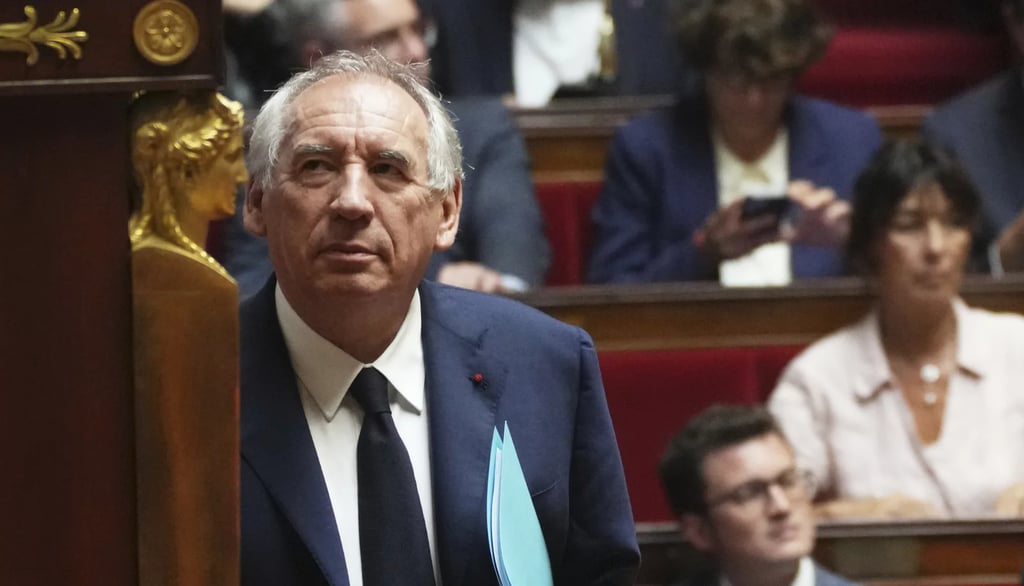Welcome to our blog ! Here you will find news and updates about sports, politics, artists, and everything that is trending right now. Enjoy the content and stay up to date with the latest trends! Stay Informed with BoomViral News.
French government plunged into crisis after no-confidence motion ousts Prime Minister
Suraay
9/9/20253 min read


France's government was ousted in a no-confidence vote on Monday, plunging Europe's second-largest economy into political turmoil and forcing President Emmanuel Macron to appoint his fourth prime minister in just one year.
Prime Minister François Bayrou was overwhelmingly defeated in a 364-194 vote, paying the price for a major political miscalculation. He had gambled that lawmakers would support his push for deep public spending cuts to tackle France's mounting debt. Instead, legislators across the spectrum united against the 74-year-old centrist, who was appointed by Macron last December.
The collapse of Bayrou’s short-lived minority government — which must now resign after less than nine months in office — ushers in a period of renewed uncertainty and raises the risk of prolonged legislative gridlock. The crisis comes as France grapples with domestic budget struggles and international challenges, including the wars in Ukraine and Gaza and shifting U.S. priorities under President Donald Trump.
Search for a Successor
Although Macron had two weeks to prepare for a potential government collapse after Bayrou announced plans to seek confidence in his unpopular budget, no clear successor has yet emerged.
With the departures of Gabriel Attal in September 2024, former Brexit negotiator Michel Barnier in December, and now Bayrou, Macron must once again find a leader capable of building consensus in a hostile lower house dominated by his political opponents.
Macron’s office stated that he will accept the government’s resignation on Tuesday and appoint a new prime minister “in the coming days.”
As president, Macron retains broad authority over foreign policy, European affairs, and military command. Domestically, however, his agenda faces mounting obstacles.
Roots of the Crisis
The current instability stems from Macron’s decision to dissolve the National Assembly in June 2024 — a gamble intended to bolster his centrist alliance but which instead resulted in a fractured parliament with no clear majority.
Since then, his minority governments have stumbled from one crisis to the next, relying on the unpredictable support of rival blocs on the left and far-right. While these groups lack the seats to govern alone, they can unite to bring down Macron’s cabinets.
Bayrou’s Failed Gamble
Bayrou took his own risk by calling the confidence vote — a move that backfired almost immediately as left-wing and far-right lawmakers seized the chance to remove him.
In his final address as prime minister, Bayrou acknowledged the gamble but insisted that France’s debt crisis left him no choice. He warned of a “silent, invisible, and unbearable hemorrhage” caused by runaway public spending and urged support for fiscal discipline.
“The greatest risk was to take no risk at all — to continue with politics as usual,” he declared. “Whether dominated by weapons or by creditors, we lose our freedom.”
France’s public debt reached €3.346 trillion in Q1 2025 — 114% of GDP — with debt servicing alone accounting for some 7% of state spending.
Calls for New Elections
The National Assembly interrupted its summer recess for the high-stakes vote. Opposition leaders are now leveraging the crisis to push for new elections, demand Macron’s resignation, or position themselves for a role in the next government.
Far-right leader Marine Le Pen called on Macron to dissolve parliament again, expressing confidence that her National Rally party and its allies could win a majority and form a government.
“A great nation like France cannot function with a powerless government, especially in such a turbulent and dangerous world,” she argued.
Ong Challenges
In a last attempt to save his government, Bayrou had warned that France was jeopardizing its future and global standing by accumulating unsustainable debt.
His successor will inherit the same precarious political landscape and urgent fiscal challenges. Under the French system, the prime minister is appointed by the president but must maintain parliamentary support to govern effectively, particularly on economic policy.
Macron has vowed to serve out his term until 2027, but he may become a lame duck if political paralysis continues.
Bayrou had proposed €44 billion in spending cuts for 2026 after France’s deficit reached 5.8% of GDP last year — far above the EU’s 3% target. He argued that without corrective action, France would remain at the mercy of its creditors and trapped in a cycle of living beyond its means.
“You have the power to overthrow the government,” he told lawmakers, “but you cannot erase reality. Reality will remain inexorable. Spending will keep growing, and so will the debt.”